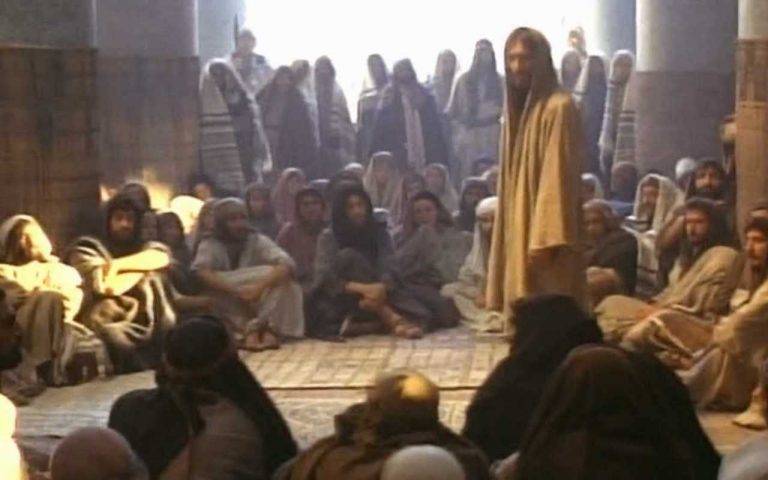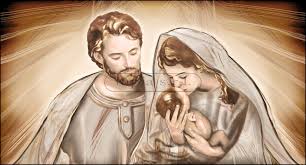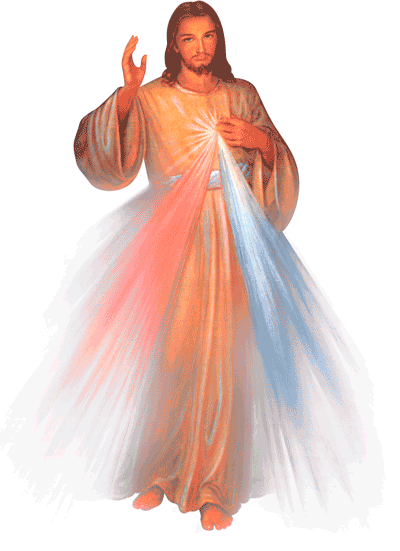
How to be or become a follower of Jesus Christ in the world and in your situation« "A prophet is not without honor except in his native place and in his own house." And he did not work many mighty deeds there because of their lack of faith ».
PREMISE
Jesus does not assist those who do not have faith in him in the same way He accompanies those who believe in him. Having Faith is therefore an indispensable requirement, even if not sufficient, to follow Him and therefore to be a true Christian. FAITH is one of the theological virtues (Faith, Hope, Charity) which are called such because they come from God himself, and make man capable of relating to the Trinity.
Faith is the voluntary act of believing in divine truths - even if they may sometimes seem absurd to us ("credo quia absurdum") - and it is a gift, a grace, that God gives to those who possess human virtues, which are the proper virtues of a just, strong, temperate person, master of himself and his actions.
A prudent person, who is not rash and who before acting thinks carefully about what he is about to do.

A prophet is not without honor except in his native place and in his own house."
HOW TO ACQUIRE THE GIFT OF FAITH IN JESUS CHRIST
Anyone who wants to practice any sport, football, tennis, swimming or even any of the so-called martial arts, or anyone who wants to conscientiously carry out and obtain results in their professional or artisanal work or otherwise, knows well that they must apply themselves and study to learn.
Such a person knows that he/she must put his/her will into it and make every effort not to give up the fight against himself/herself, against his/her own laziness. And be as assiduous as possible.
And even when one believes he/she has reached the level he/she considers satisfactory, should never stop studying and training, because would risk regressing and settling in a situation of mediocrity.
All the more reason to acquire and maintain the gift of faith in Jesus Christ, one must first of all make an effort to know Him, for example by reading and meditating on the Gospel, where He Himself makes Himself known as God.
But this is not enough. Knowing Jesus is not easy and requires commitment from us. For this reason, in addition to trusting in the wisdom and depth of the religious culture of the priest or priests we know, we can also document ourselves through a vast literature.
We have numerous sources that inform us rationally about the figure of Christ (many years ago at first I used in Italian the ENCYCLOPEDIA JESUS - TWO THOUSAND YEARS OF TOPICS Editor SAIE).
Without the slightest intention of advertising, I would also mention some of the works of Abbot Giuseppe Ricciotti. I would especially recommend the Life of Jesus Christ, 1941 (EFFEDIEFFE 2018); Saint Paul the Apostle, 1946 (EFFEDIEFFE 2019); and also, if found, his work on the 'Acts of the Apostles'.

Jesus always sees you. You cannot pretend with him
to be who you are not.In my opinion these readings are useful for staying anchored to rational reality and then being able to read works of a more spiritual nature.
For example, I recommend a beautiful work by Francisca Javiera Del Valle entitled "Decenario to the Holy Spirit".
In my opinion, without exaggerating, one could say that all this is just a premise because to have the gift of Faith, but especially to preserve it, it is necessary to pray assiduously.
In other words, we must find and exploit all those devices, for example sacred images arranged in strategic points in our home and in the workplace - where possible - which allow us to remind ourselves that we must pray and live in the presence of God, aware that He looks at us and that is always close to each of us..
However, even if we have Faith, God CAN'T give us absolute certainty of His existence, or intervene at command. Otherwise we would no longer be free to do good, and we would have to believe in Him because we were forced to..
Instead, we must conquer the gift of Faith and continue stubbornly trying not to deflect from our good intentions.
IF WE MAKE MISTAKES, SINCE WE ARE MEN AND WOMEN, OFTEN EASY TO MISTAKE, JEDUS IS ALWAYS READY TO FORGIVE US, IF WE RECOGNIZE BEFORE HIM THAT WE HAVE BEEN WRONG AND TRY TO RECTIFY OR REMEDY ANY EVIL WE MAY HAVE DONE.
AND IF WE HAD TO FALL UNFORTUNATELY, WE ASK FOR FORGIVENESS AND NEVER STOP PRAYING. We Catholic Christians also have the possibility of asking for forgiveness through the sacrament of penance.
HOW TO FACE DOUBTS OF FAITH (which are also proof of the existence of the devil)
Jesus Christ repeatedly tells us that the devil exists, and that IT'S not simply an abstract personification of evil, but a real and existing person; the devil takes advantage of every crack, or even some distraction.
Sometimes, when you're doing something else or when you least expect it, or even while you're reading a passage from the Gospel or another spiritual book, doubts arise and you think: if instead of being what is said, it were instead ... ?
I don't trust anything here about the many doubts I've had, but I've noticed that they come to you on any occasion, even when you really don't think about them, and they are all the more complex and sophisticated the more complex and sophisticated the person's cultural preparation is.
TO FACE THE DOUBTS OF FAITH, THEREFORE, YOU DON'T NEED TO GIVE THEM A ROPE, BROUGHT ABOUT IT AND CONSIDER IT TO FIND SOLUTIONS. DOUBTS OF FAITH MUST BE DRIVEN OFF FROM THE MIND, SIMPLY IGNORED. THIS WAY, AFTER A LITTLE, SATAN WILL STOP IMPRESSING, UNLESS HE'LL TRY AGAIN ANOTHER OCCASION.
end of comment
----------------------------------------------------------------------
HISTORICAL NOTE(in summary few words about the Jesus family)
ANNA ang JOACHIM
There are no references in the Bible about Joachim and Anna, Mary's parents, and there is no sure information; those that have come down to today are derived from apocryphal texts such as the Protoevangelium of James and the Gospel of pseudo-Matthew, as well as from tradition.
HOWEVER, WE KNOW THAT THEY WERE BOTH FROM PRIESTLY FAMILIES AND WERE REALLY VERY RICH. However they were despised among the Jews because they had no children, which was judged a curse, a punishment for the sins committed. Commending themselves to God they finally had Mary, the future mother of Jesus, and in recognition they dedicated, and sent Her to the Temple to be educated there.
IN ADDITION TO BEING VERY RICH THEY WERE ALSO NOBLES, DESCENDANTS OF KING DAVID, AS ALSO ALSO JOSEPH, THE PUTATIVE FATHER OF JESUS.
LET'S TALK briefly ABOUT MARY
Mary, also speaking of as a simple woman, she is not just a common person. Educated in the Temple according to her royal nobility rank due to the vow made by her parents, Mary knows how to read and write like a Master of the Law, which She knows perfectly. As soon as she reaches puberty she has to leave the Temple.
Virginity among the Jews was not appreciated at all and therefore the girl must marry, but for a woman of her culture and her rank it is not easy to find a worthy spouse to whom to entrust her.
Reasonably, Her husband therefore cannot be any person, He must be able to keep Her conveniently in Her rank, and also be of noble descent. Both he and his wife actually descend from King DAVID.
Nevertheless Mary is mentioned very little in the Synoptic Gospels. To understand who she was, in addition to God's call, we must remember what the Synoptic Gospels refer to.
[.. ] there was a wedding in Cana of Galilee, and the mother of Jesus was there. |
From here I thought I guessed that it was Mary who was invited to the wedding and that consequently Jesus was also invited with His disciples.

Palestine in the time of JesusEVEN IF MARY WAS A WOMAN, SHE WAS THEREFORE A PERSON OF GREAT CONSIDERATION, WIDOW OF A VERY KNOWN MAN.
JESUS WAS SO TOO, EVEN THOUGH AT THE TIME HE HAD NOT YET PERFORMED MIRACLES, BECAUSE THE SON OF A VERY IMPORTANT YOUNG WIDOW, DAUGHTER OF VERY WEALTHY PARENTS..
LET'S TALK ABOUT JOSEPH
Even less is said about him in the Gospels than about Mary.
From the evangelical story that narrates the birth of Jesus, we know that Joseph's family was originally from and resided in Bethlehem.
Due to the census promulgated by the Emperor Octavian Augustus and managed by the Governor of Syria Quirinius, Joseph and Mary leave Nazareth in Galilee.
They must reach Bethlehem in Judea about 150 km away, due to the custom of being registered in the place of origin of the head of the family.
Descendant of the lineage of David through Jacob (Mt 1,16) and Eli (Lk 3,23), Saint Joseph, whose name in Hebrew means "Jahvè increase", or "add", lived in Nazareth, in Galilee, while the the home of his original family was in Bethlehem, a town 8-10 km south of Jerusalem.
THE FAMILY OF JESUS
Since we are talking about brothers and sisters of Jesus, in addition to thinking of cousin relationships, it is conceivable that, for example, they were children of a previous marriage of Joseph. It is possible that Joseph was a widower, a man of a certain age, not old but not young either, because by dying before Jesus turns 20-30 yo he leaves Mary a widow, and JESUS, NOW ADULT, TO TAKE CARE OF HIS ACTIVITY.
It must also be said that in the Gospels such details are usually given at times, and there is no mention of other people who besides Jesus lived together with Mary and Joseph.
All things considered, if Joseph had had other children, these must presumably have already grown up and were independent at the time of Jesus' birth.
THE PROFESSION EXERCISED BY SAINT JOSEPH AND THEN BY JESUS

La Sacra famiglia
Probably, as the Abbot Ricciotti proposes, Giuseppe was not a simple wood carpenter, as instead is evident from the tradition and from the official version.
The Latin versions of the Gospels are in fact versions of Aramaic or Greek.
As far as I remember from my classical studies and from all the versions of ancient Greek - which I did in high school - many words and verb forms can take on different meanings depending on the context. In the first Latin translation from the Greek Josephus was called 'FABER' and not 'LIGNARIUS' which in Latin means precisely a wood carpenter. And in other passages Jesus is called the son of a 'CARPENTER'.
St Joseph was therefore probably a 'FABER' 'BUILDER' of houses or exercised some other productive activity of an artisanal nature.
The artisans then weren't ordinary people, because everything was produced by hand, even if sometimes their shops could be very large and employ many workers.
The foreign kings who had periodically invaded Israel in the past had first taken away the Jewish craftsmen, whose great industry and skill were worth more than any wealth.
THE PAUPERIST VISION
What was handed down in the centuries following the fall of the Roman Empire, which precipitated the quality of life due to the invasions from Asia and epidemics, corruption and demographic decline in the West, and above all due to the GREAT number of the servile - the slaves - has forcibly taken on a markedly pauperistic connotation in the following ages.
The relatively new concept of equality of all men before God the Unique Creator, therefore above all of love for one's neighbour, through the emphasis on the concepts of fraternity and mercy, has been instrumentally used to mitigate the living conditions of the weaker classes and to propagate faster the Good News.
In reality, given what has been said of Mary and Joseph and their families, they were not ordinary people. They were important people and not all in all poor people who had to raise the daily money, far from it. This can be understood if one reads the Gospel in a certain light, that is trying to integrate events of the time, the parables of Jesus, the places, the people and the professions of Palestine at the time under the historical aspect, as Abbot Ricciotti does in his works.
In this regard, it is very useful to read the Abbot's analysis also in relation to the 'acts of the apostles'.
Back then, just like today, people of a certain rank were people of culture, for example Joseph certainly had to know at least four languages (Aramaic, Greek, Latin, Egyptian dialect). They were organized and well-endowed people who could afford to go suddenly, at any moment, to neighboring Egypt and stay there without problems.
These were traits common to the nobles of the time.
We know for example that the Proconsul Pontius Pilate, of the noble Samnite family of the Pontii, husband of a woman of the family of the imperial family of Julius-Claudii (Pilate's wife: Claudia, alias Procula, Perpetua), as Proconsul, to cover the he job had to know Greek (the international language at the time), Aramaic and also other languages spoken in the Empire.
__________________________________________________________________

Don't worry ! the mercy of Jesus
is INFINITE
Holy Gospel of Jesus Christ according to Saint Matthew 13,54-58.
Jesus came to his native place and taught the people in their synagogue. They were astonished and said, "Where did this man get such wisdom and mighty deeds?
Is he not the carpenter's son? Is not his mother named Mary and his brothers James, Joseph, Simon, and Judas?
Are not his sisters all with us? Where did this man get all this?"
And they took offense at him. But Jesus said to them, "A prophet is not without honor except in his native place and in his own house."
And he did not work many mighty deeds there because of their lack of faith.
Copyright © Confraternity of Christian Doctrine, USCCB



